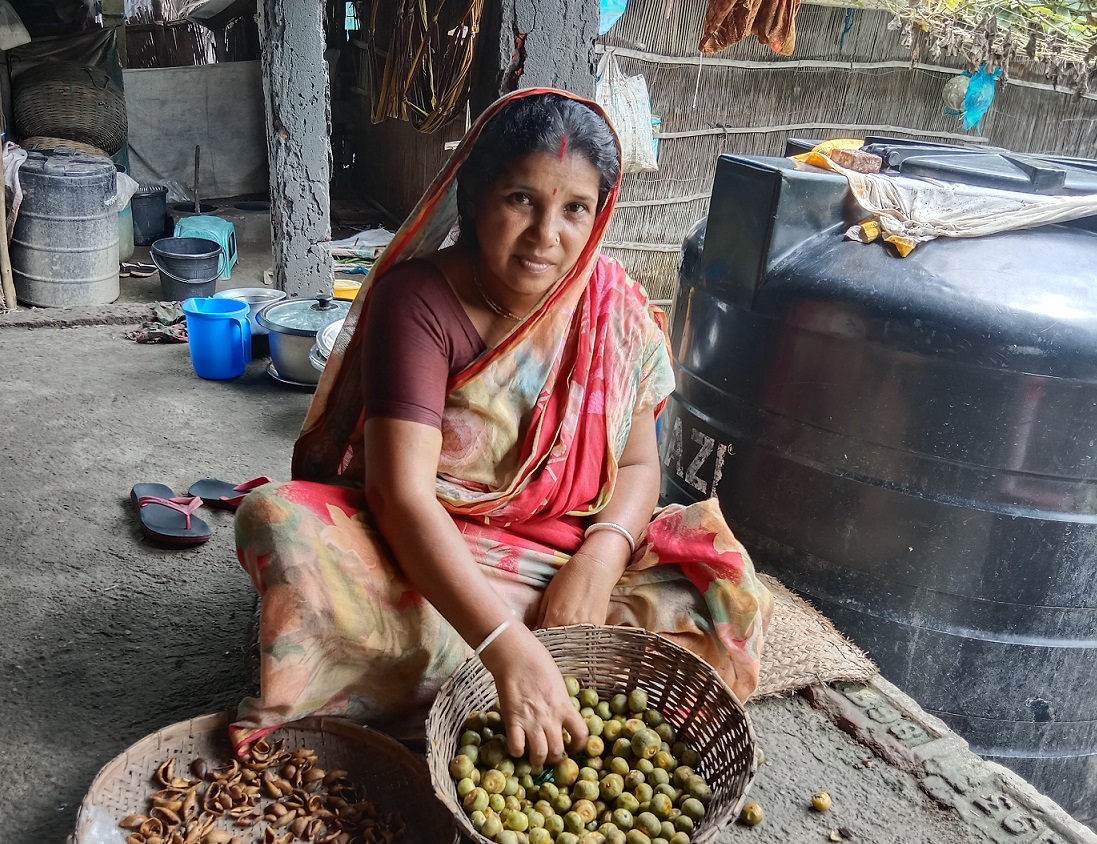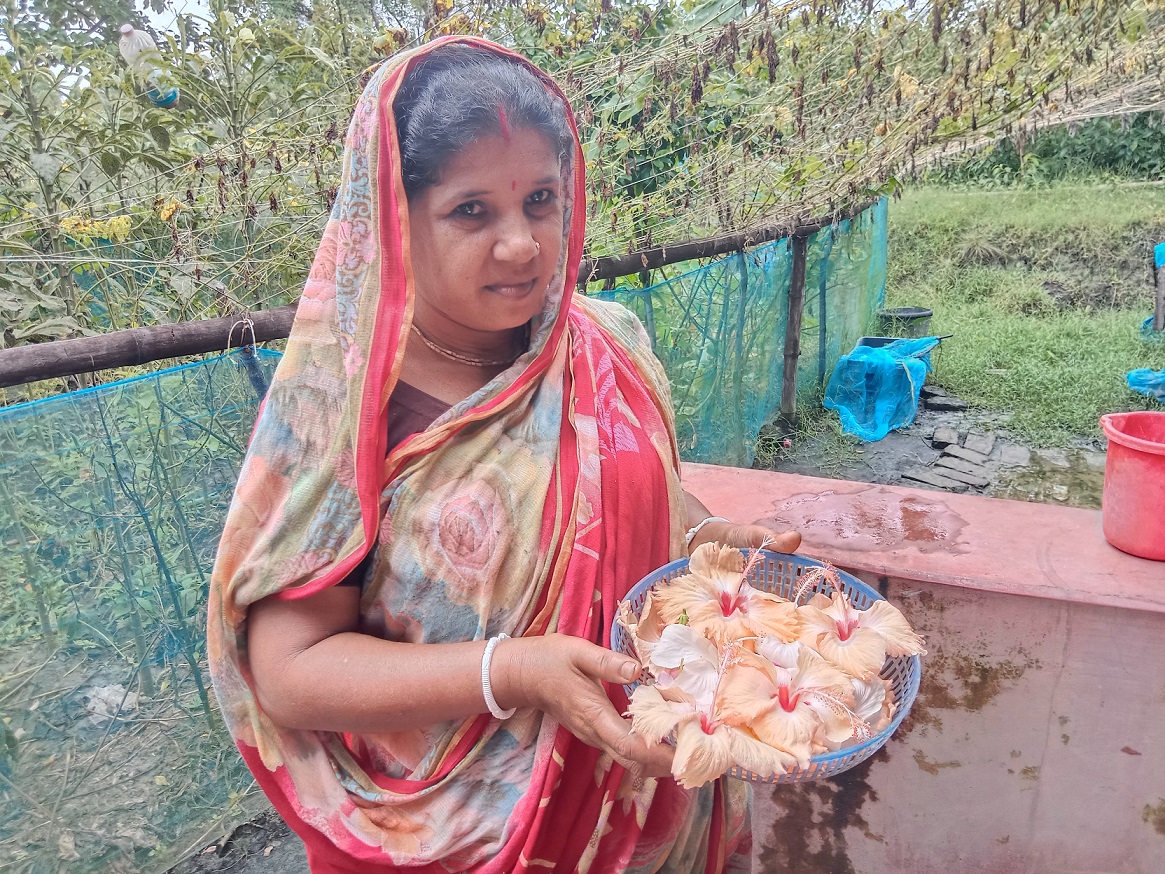By Champa Mallick from, Shyamnagar, Satkhira
In Kolbari village of Burigoalini union, Satkhira’s coastal belt, lives Pushpa Rani Paik with her husband, three daughters, one son, and mother-in-law. Their seven-member family lives in just 10 decimals of homestead land located on a riverbank which is surrounded on three sides by saline water and bordered by a WAPDA embankment on the other.

Despite this harsh environment, Pushpa Rani has long tried to grow fruits and vegetables in her yard to meet her family’s nutritional needs. She educated her daughters and arranged their marriages, while ensuring her son continued his studies. But repeated cyclones and saline water intrusion often destroyed her plants, leaving the homestead barren.
Refusing to give up, she sold her jewelry to build mud embankments around her home to block saline water and began again. In 2025, she joined BARCIK’s Shatobari (Nutrition Bank) program, gaining technical knowledge, awareness, and support. She learned to grow vegetables using sacks, raised beds, and recycled materials, and to use salt-tolerant local seeds. She also started livestock rearing and seed conservation.
Today, gourds, pumpkins, ridge gourd, sponge gourd, bitter gourd, and spinach hang from trellises in her yard, while ginger and chili grow in sacks. Ducks and chickens provide food and income.

This initiative has already changed her life. Her family now meets most of its vegetable needs at home, reducing expenses and restoring hope. Most importantly, she no longer breaks down after disasters; instead, she believes that with planning and patience, survival is possible even in saline environments.
Her dream now is to strengthen the homestead embankments, expand seed conservation, and rear more poultry. Pushpa Rani’s story proves that resilience, knowledge, and determination can turn adversity into opportunity.
